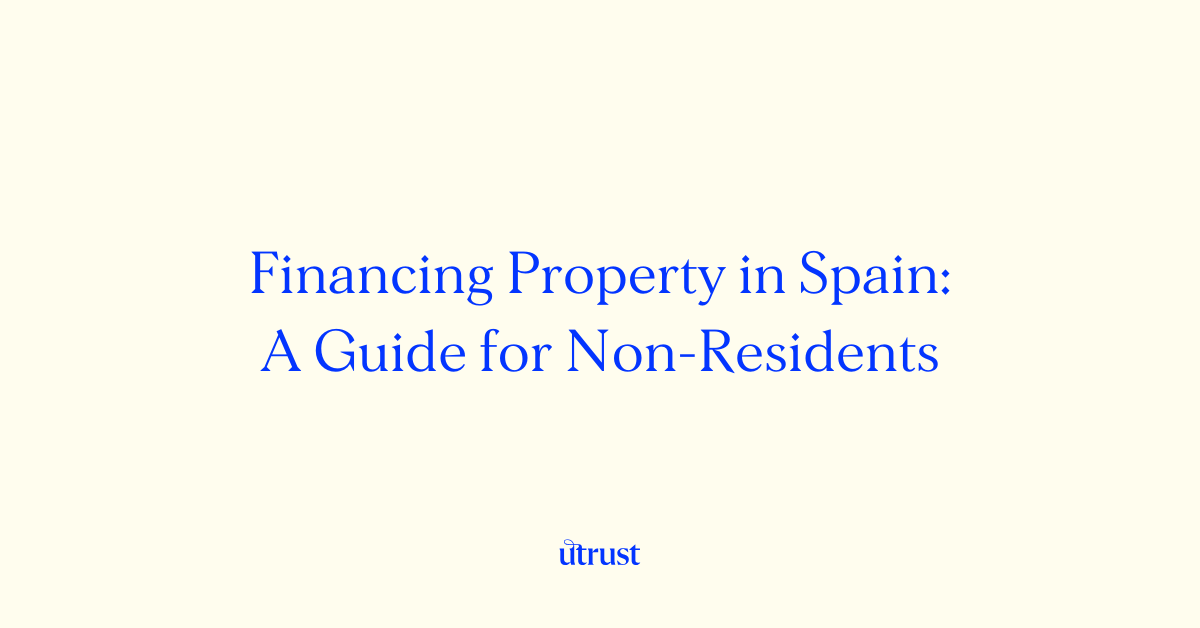Spain is a top destination not only for tourists but also for foreigners looking to invest in property. Whether it’s a vacation home on the Costa del Sol or an investment property in Madrid, many non-residents wonder if they can secure a mortgage in Spain. The good news is that it’s entirely possible for non-residents to obtain a mortgage, but the process and requirements can differ significantly from those for Spanish residents. In this comprehensive guide, we’ll walk you through everything you need to know about non-resident mortgages in Spain.
Requirements for Non-Residents Seeking a Mortgage in Spain
If you’re a non-resident looking to finance a property purchase in Spain, you’ll need to provide specific documentation to the lender. Here’s what you typically need:
Essential Documents for a Non-Resident Mortgage
- Valid Passport: Proof of identity is required for all applicants.
- Proof of Income: This includes recent payslips, tax returns, or bank statements showing your financial stability.
- Proof of Employment: Lenders need to see evidence of stable employment or a reliable income source.
- Spanish Fiscal Identification Number (NIE): The NIE is mandatory for any legal transactions in Spain. You’ll need this unique tax identification number to proceed with the mortgage application.
- Spanish Bank Account: Although not always mandatory, having a Spanish bank account simplifies the mortgage process and is often required for loan repayments.
- Guarantor: In some cases, the lender may request a Spanish resident as a guarantor, especially if the applicant’s income or credit history is insufficient.
Lending Criteria for Non-Residents: What You Need to Know
The lending criteria for non-residents differ from those for Spanish residents. Here’s what to expect:
1. Higher Deposit Requirement
- Non-residents are typically required to provide a larger down payment, ranging from 30% to 40% of the property’s purchase price. This is higher than the typical 20% deposit required for Spanish residents.
2. Lower Loan-to-Value Ratio (LTV)
- The Loan-to-Value (LTV) ratio for non-residents is generally lower, usually capped at 60% to 70% of the property’s value. This means you’ll need a higher deposit and less financing compared to resident buyers.
3. Higher Interest Rates
- Non-residents may face higher interest rates compared to Spanish residents. The interest rate often depends on factors such as the applicant’s country of residence, credit history, and the chosen mortgage term.
The Application Process for Non-Resident Mortgages in Spain
Securing a mortgage in Spain as a non-resident involves several steps, but with the right preparation, it can be a straightforward process. Here’s what to expect:
Step 1: Finding the Right Lender
- Not all Spanish banks offer mortgages to non-residents. It’s essential to find a lender that caters to international clients. Working with a mortgage broker can help streamline this process by connecting you with suitable lenders.
Step 2: Submit Required Documentation
- Once you’ve found a lender, you’ll need to gather and submit the necessary documents, including proof of income, proof of employment, and your NIE. The lender will also conduct a credit check to assess your financial stability.
Step 3: Property Valuation and Loan Approval
- The lender will arrange for a property valuation to determine its market value. Based on this valuation and your financial profile, the bank will decide whether to approve the mortgage and the terms they can offer.
Step 4: Signing the Mortgage Agreement
- If your mortgage application is approved, you’ll sign the mortgage agreement at a notary’s office in Spain. This legally binds the terms of the loan and secures your financing for the property purchase.
Tips for Securing the Best Non-Resident Mortgage Rates
Here are some expert tips to help you secure the best mortgage terms as a non-resident:
1. Work with a Mortgage Broker Specializing in Non-Resident Clients
- A specialized mortgage broker can help you navigate the complex process and find the best rates available for non-resident buyers.
2. Prepare a Strong Financial Profile
- Ensure you have all required documents ready and showcase a strong financial history. This will increase your chances of getting approved and may help you secure better terms.
3. Negotiate the Terms
- Don’t be afraid to negotiate the interest rates and terms with the lender. Many banks are open to adjusting rates, especially if you can demonstrate strong financial stability.
Benefits of Getting a Mortgage in Spain as a Non-Resident
Financing your property purchase in Spain through a non-resident mortgage can offer several advantages:
- Leverage Your Capital: By using a mortgage, you can leverage your capital to invest in multiple properties or other assets.
- Tax Deductions: Mortgage interest payments may be eligible for tax deductions depending on your country of residence.
- Access to Competitive Rates: Despite slightly higher rates for non-residents, Spain’s mortgage rates remain competitive compared to other European countries.
Navigating the non-resident mortgage process in Spain may seem daunting, but with the right guidance, it can be a seamless experience. At UTRUST, we specialize in helping international clients secure the best mortgage terms for their Spanish property investments. Contact us today via info@utrust.es for a personalized consultation and let our expert team guide you through every step of the process, ensuring a smooth and successful property purchase in Spain.
